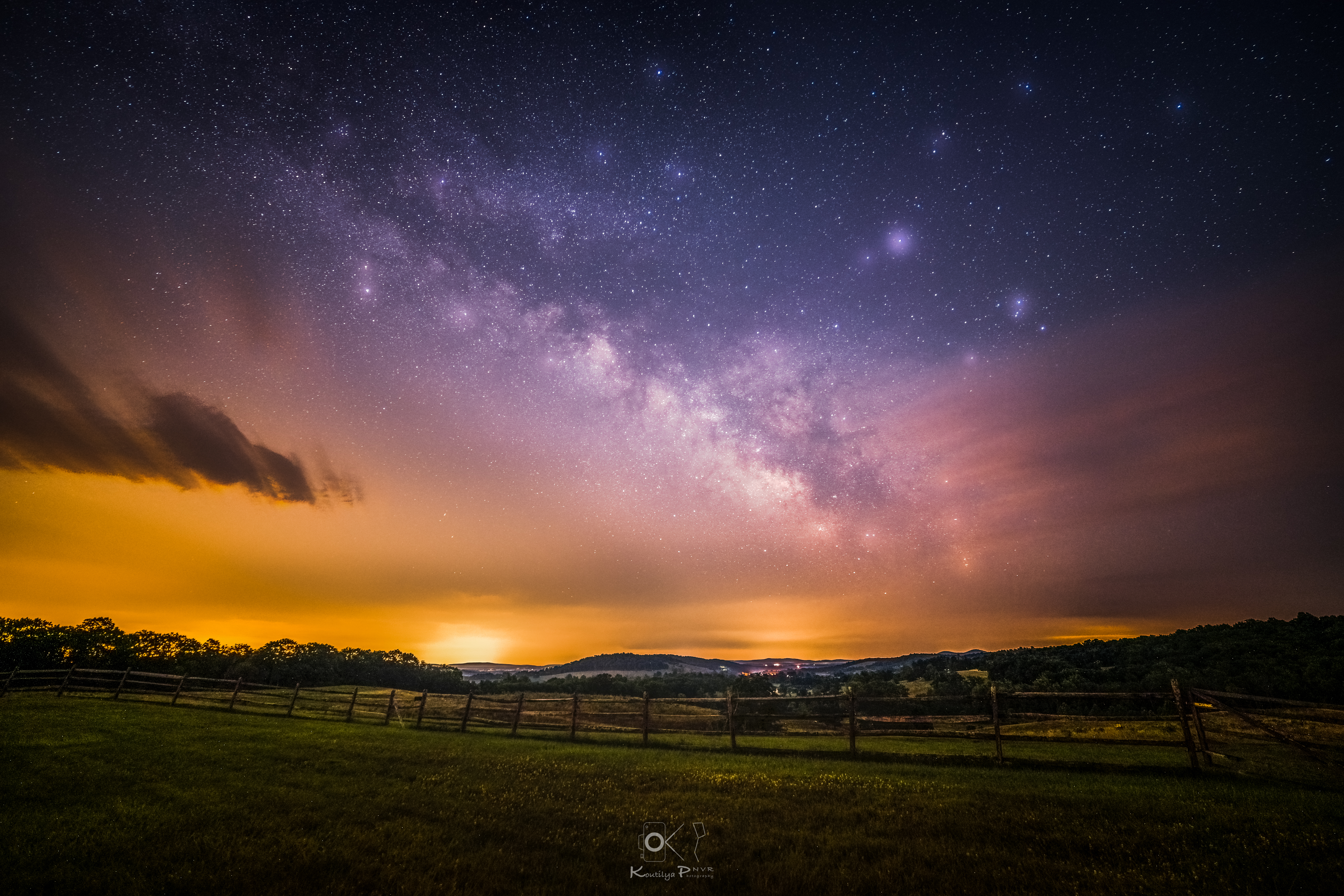Searching the Nighttime Sky Brings Peace of Mind and New Ideas
As a graduate student working in the University of Maryland Institute for Advanced Computer Studies (UMIACS), Koutilya Ponukupati Naga Venkata Rama would often spend 50 or more hours each week conducting important research.
Much of Ponukupati’s work focused on computer vision—particularly on topics that lay at the intersection of generative AI and vision-language models for improving existing computer vision systems.
But when the lab work became overwhelming, or he needed a break to refresh or rethink ideas, Ponukupati would leave his academic home in College Park to visit some of the nation’s most scenic vistas.
In places like Arches National Park and Zion National Park, both in Utah, or Assateague Island on Maryland’s Eastern Shore, Ponukupati would refocus his thoughts—and the lens of his Sony a7III professional-grade camera—on the celestial skies above. The stunning nighttime photos taken at these locations and others can be seen on his Flickr page, showcasing Ponukupati’s growing body of work in astrophotography.
Capturing expansive views of the Milky Way galaxy and silvery swirling star trails is more than just a hobby, Ponukupati explains, as it can also bring new insight for himself and the world around him.
“When I do stargazing, it reminds me not only of how much our species still has to evolve, learn and explore—it also gives me a sense of calmness and relief,” he says. “Sometimes we get so caught up in our day-to-day lives, but these views help me remember that in the grand scheme of things nothing matters that much. I just know that whatever I’m going through or struggling with, it’ll be okay eventually.”
Ponukupati recently defended his Ph.D. dissertation, adding a doctoral degree from the Department of Electrical and Computer Engineering to the master’s degree he earned there in 2017.
He is currently interviewing with several companies, hoping to end up as a research scientist in private industry. 
But he doesn’t plan to let up on his astrophotography. He remains active as a member of the Northern Virginia Astronomy Club, and often attends their stargazing meetings held in scenic locations like Sky Meadows State Park in Virginia (pictured right).
Ponukupati says he hopes to one day combine his interest in capturing images in outer space with his research in computer vision.
One approach, he believes, might involve his work in segmenting novel objects in images by using knowledge from generative models, bypassing the need for manual annotations. Accordingly, generative models with a visual knowledge of outer space can one day aid computer vision systems in recognizing various celestial bodies, benefiting the field of astronomy
“These new systems have recently revolutionized computer vision,” says Ponukupati.
Ponukupati also plans to remain in close contact with his academic adviser at UMD, David Jacobs, a professor of computer science who has a joint appointment in UMIACS. Jacobs is a leading expert in computer vision who is currently on sabbatical from UMD for another six months while working at Meta Research in New York.
“David helps you understand how to do fundamental research and is very hands-on,” Ponukupati says. “He not only supports your research but helps with brainstorming when you’re feeling stuck. I am forever grateful for his guidance.”
—Story by Melissa Brachfeld, UMIACS communications group
